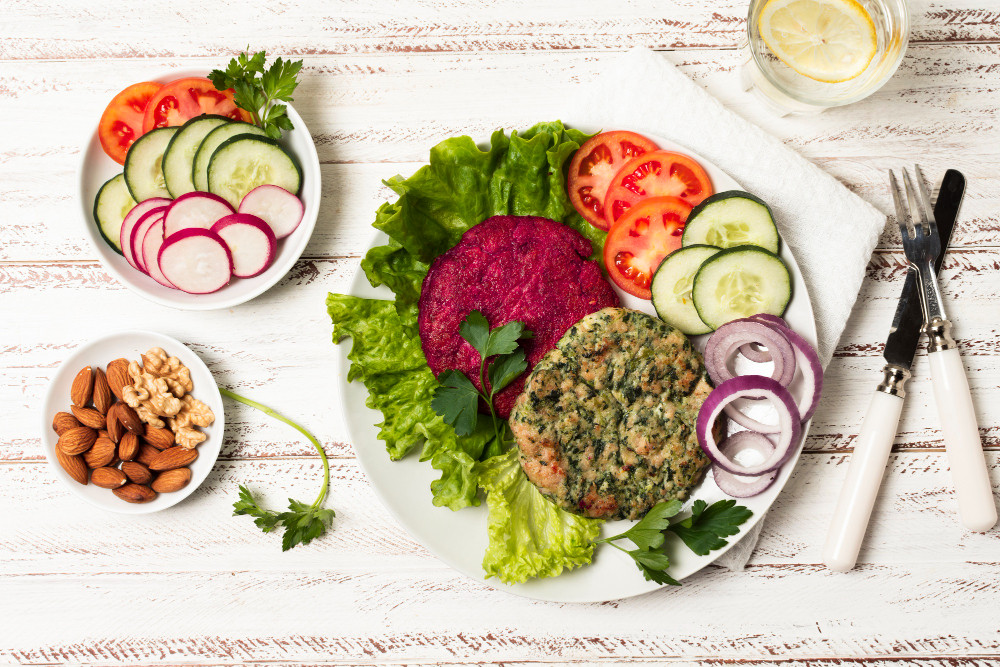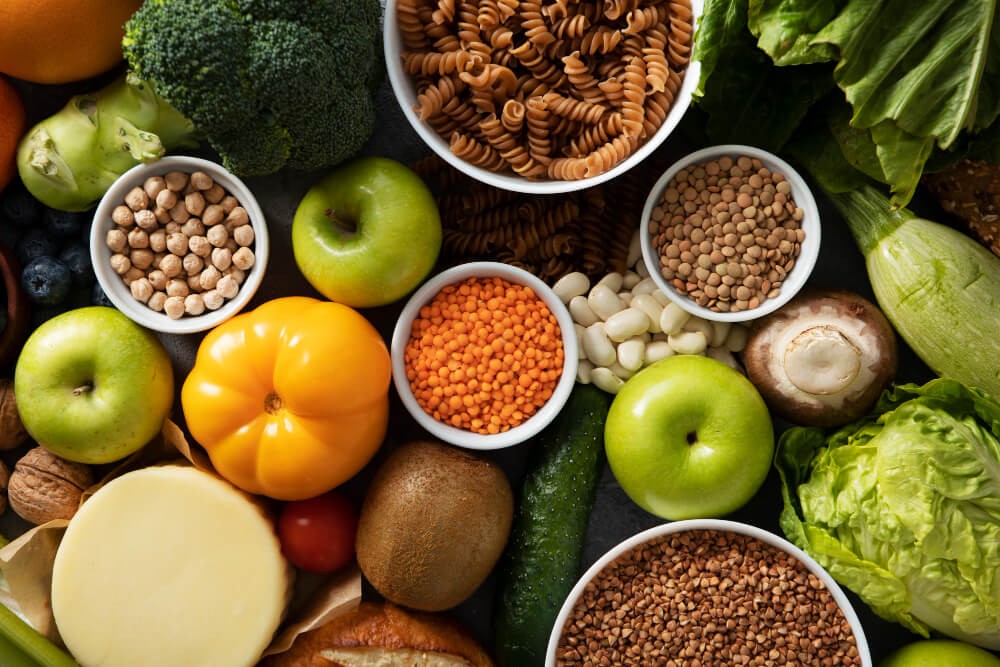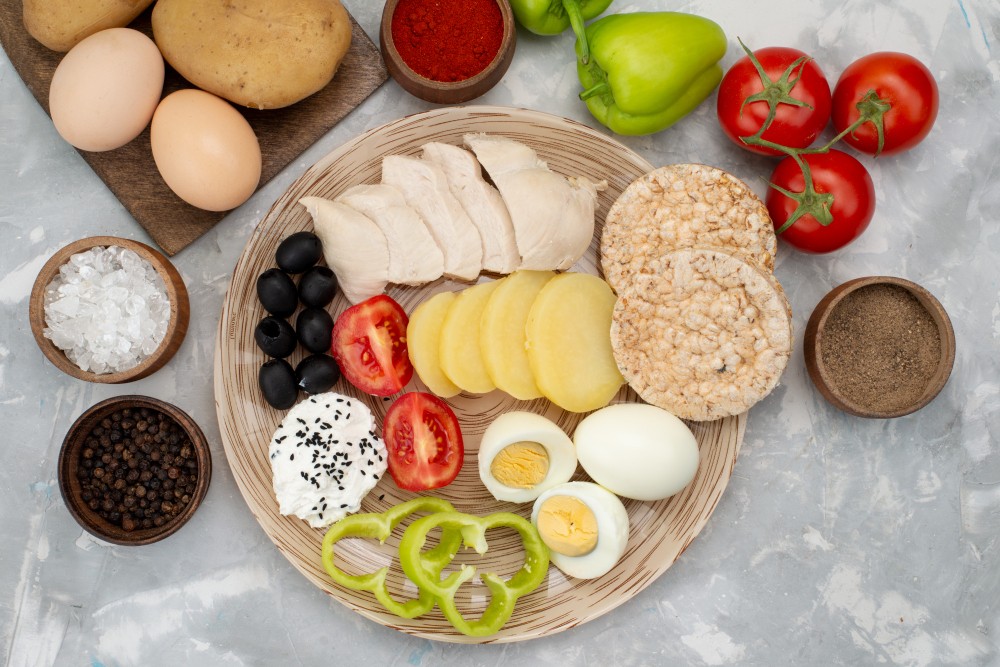The plant-based diet is becoming more and more famous these days. Vegetables, nuts, and seeds are some of the main plant-based foods that are thought to be good for your heart and lower your chance of other health problems. A plant-based diet is thought to be healthy, but a lot of people worry about how they will get enough protein.
What is a plant-based diet?
There are a lot of eating plans and diets that you can follow right now to be healthy. Among the many popular diet plans, experts agree that eating foods that are fresh, natural, and minimally processed is beneficial for many different types of people. In keeping with this lifestyle, a plant-based diet is one dietary option.
According to Healthline, following a plant-based diet is more of a way of life than a set of specific dietary guidelines. Generally, the idea of a plant-based diet can be defined as follows:
- Prioritize the consumption of unprocessed, whole foods.
- Restrict or avoid from consuming animal products
- The primary focus of main meals is on plant-based food, including vegetables, fruit, whole grains, legumes, and nuts.
- Restrict or stop consuming processed foods, including those that contain added sugar, white flour, and refined oils.
- If feasible, the vegetables that are consumed are organic.
At first glance, a plant-based diet looks like a vegan or vegetarian diet. However, people on a vegan diet usually don't eat dairy, red meat, fowl, sea fish, or honey. On the other hand, vegetarians still eat seafood, eggs, and dairy, but they don't eat red meat or fowl.
Choosing the right plant-based meat substitute
Protein intake is a concern for plant-based diets. Experts say many plant proteins lack crucial amino acids, like red meat and fowl. A person may develop dietary deficiencies. Other viewpoints show that a plant-based diet can meet these needs.
In order to fulfill your protein requirements while following a plant-based diet, some food options that are rich in protein are:
- Processed soybeans such as tofu and tempeh
- Lentils and legumes
- Nuts (almonds)
- Spirulina
- Quinoa
- Chia seeds
- Potato
- Green leafy vegetables such as spinach, broccoli and kale
- Seitan
- Sorghum
- Mold
If you need to fulfill your protein and nutritional demands while following a plant-based diet, you should eat a variety of vegetables that are rich in protein. People who don't like veggies, on the other hand, may find this hard. To get around this, you can process different veggie proteins in this way:
- Add more kinds of nuts to one kind of dish. You can make soup or salad from lentils, chickpeas, and red beans. Adding nuts to vegetable salad not only changes the texture but also makes it taste better.
- Use the savory flavor of vegetables. The umami's sharp flavor may increase appetite. Roasted vegetables, including tomatoes, mushrooms, and beans, as well as sautéed shallots, can be incorporated to impart a fragrant aroma and a sweet flavor.
- Boost the quantity and diversity of seasonings used in your culinary endeavors.
A plant-based diet is a dietary pattern that focuses on the consumption of vegetable-based foods. This meal is healthy, but it's hard to get enough protein with this eating plan.
If you want to stick to a plant-based diet, you should eat more different kinds of veggie protein every day. If you want to know more about plant-based meals, you can either visit a doctor or nutritionist, or make use of the consultation features that are available in the Ai Care application by downloading the Ai Care application from the App Store or Play Store.
Looking for more information about nutrition, food, and other diet tips? Click here!
- dr. Alvidiani Agustina Damanik
Garone. S. (2022). Plant-based Protein: The Best, the Worst, and Everything In Between. Available from: https://www.healthline.com/nutrition/plant-based-protein-the-best-the-worst-and-everything-in-between
Manaker, L. (2024). Increasing Plant-Based Protein by Just 3% May Help You Age Healthier. Here's How to Do It. Available from: https://www.verywellhealth.com/plant-protein-increase-healthy-aging-8551138
McManus, K. (2024). What is a plant-based diet and why should you try it?. Available from: https://www.health.harvard.edu/blog/what-is-a-plant-based-diet-and-why-should-you-try-it-2018092614760
Kubala, J. (2023). Whole-Foods, Plant-Based Diet: A Detailed Beginner's Guide. Available from: https://www.healthline.com/nutrition/plant-based-diet-guide
Villines, Z. (2023). Top 15 sources of plant-based protein. Available from: https://www.medicalnewstoday.com/articles/321474
Ajmera. R. (2023). The 18 Best Protein Sources for Vegans and Vegetarians. Available from: https://www.healthline.com/nutrition/protein-for-vegans-vegetarians











